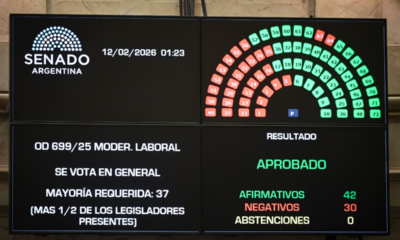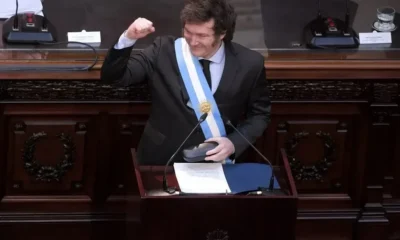INTERNACIONAL
Exiled Iranian prince tells Trump he can be ‘one of history’s great peacemakers’ amid talk of regime change
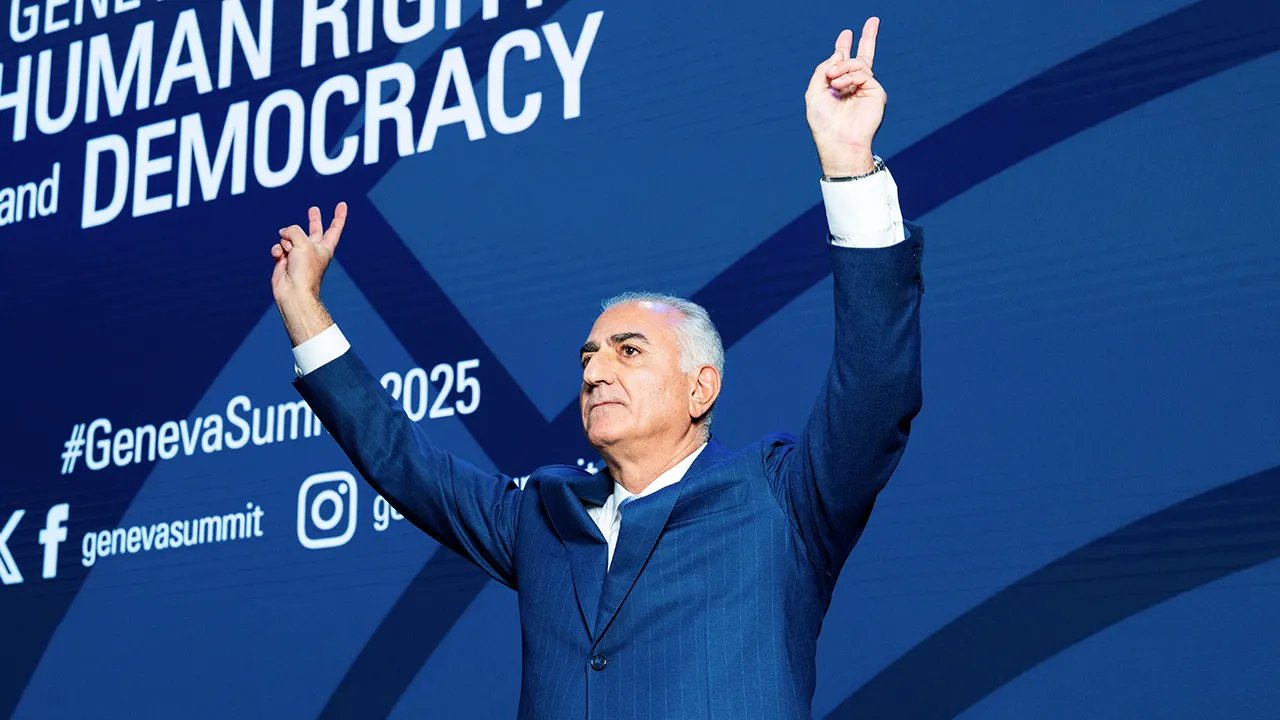
NEWYou can now listen to Fox News articles!
FIRST ON FOX – As U.S. and Israeli airstrikes on Iran give way to an historical ceasefire, opposition figures are stepping forward with renewed urgency — calling on the United States to support regime change led by the Iranian people.
One of the most prominent voices is that of the exiled Crown Prince Reza Pahlavi, the eldest son of the late Shah of Iran, who has long advocated for a secular and democratic alternative to the Islamic Republic.
Born in Tehran in 1960, Pahlavi was officially named crown prince during his father’s coronation in 1967. In 1978, at the age of 17, he left Iran for military training with the United States Air Force in Texas. Months later, his family was forced into exile following the 1979 Islamic Revolution, and the monarchy was replaced by an Islamic theocratic regime that has ruled Iran ever since.
In an exclusive interview with Fox News Digital, the prince discussed the growing resistance inside Iran, his message to the military and why he believes now is the moment for President Donald Trump to act in support of the Iranian people.
HERE’S WHAT A POST-AYATOLLAH IRAN COULD LOOK LIKE IF WAR WITH ISRAEL LEADS TO REGIME’S FALL
Reza Pahlavi, the son of Iran’s toppled Shah Mohammad Reza Pahlavi, speaks during a press conference on Monday, June 23, 2025 in Paris. (Thomas Padilla/AP Photo)
Fox News Digital: What’s your message to President Trump and the American people?
Reza Pahlavi: President Trump is looking for peace in the Middle East and an end to chaos. He wants to keep American troops safe and finally bring them home. I want the exact same thing. But the current regime in Iran does not want this. It thrives on chaos and bloodshed. So true peace can only happen when the Islamic Republic is gone.
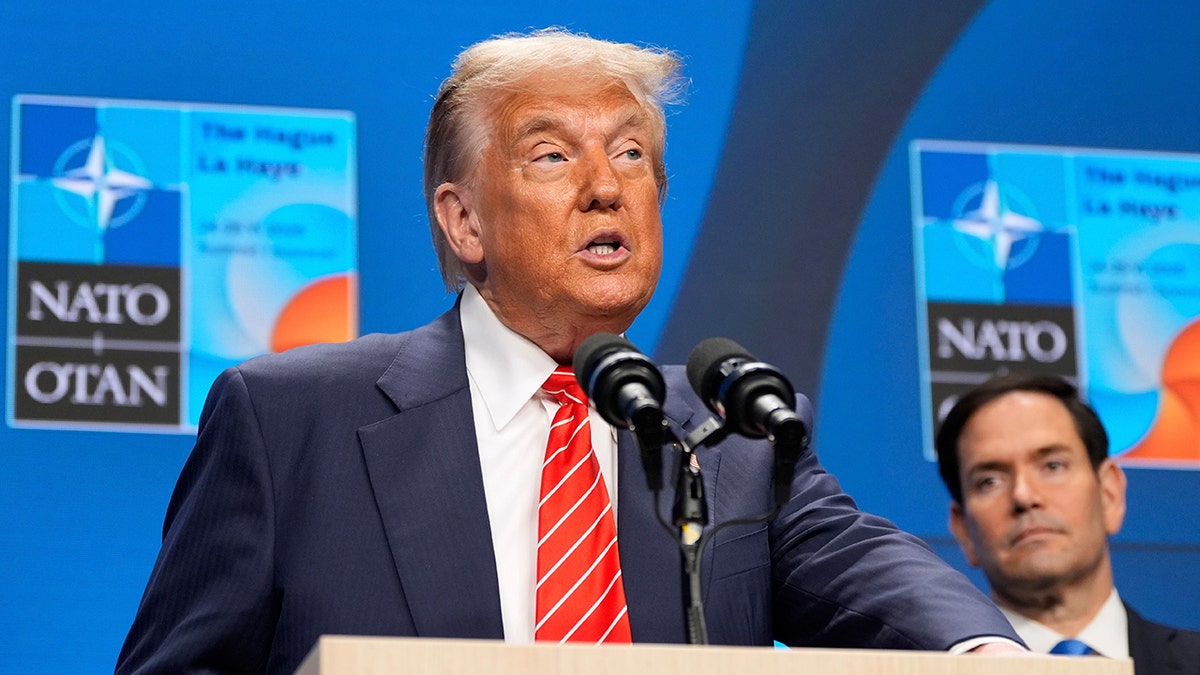
President Donald Trump speaks during a media conference at the end of the NATO summit in The Hague, Netherlands, on Wednesday, June 25, 2025. (AP Photo/Alex Brandon)
So my message to President Trump is this: the way to end the chaos and destruction is to help the people of Iran to end this regime and take their country back. He can leave a lasting legacy and be one of history’s great peacemakers if this happens. I am ready to be his partner in this process and this mission and lead our nation into a peaceful, democratic future once again aligned with regional stability and American interests. Working with President Trump, we can bring down the world’s most dangerous regime—and fill the void not with chaos, but with strength, order, and freedom.
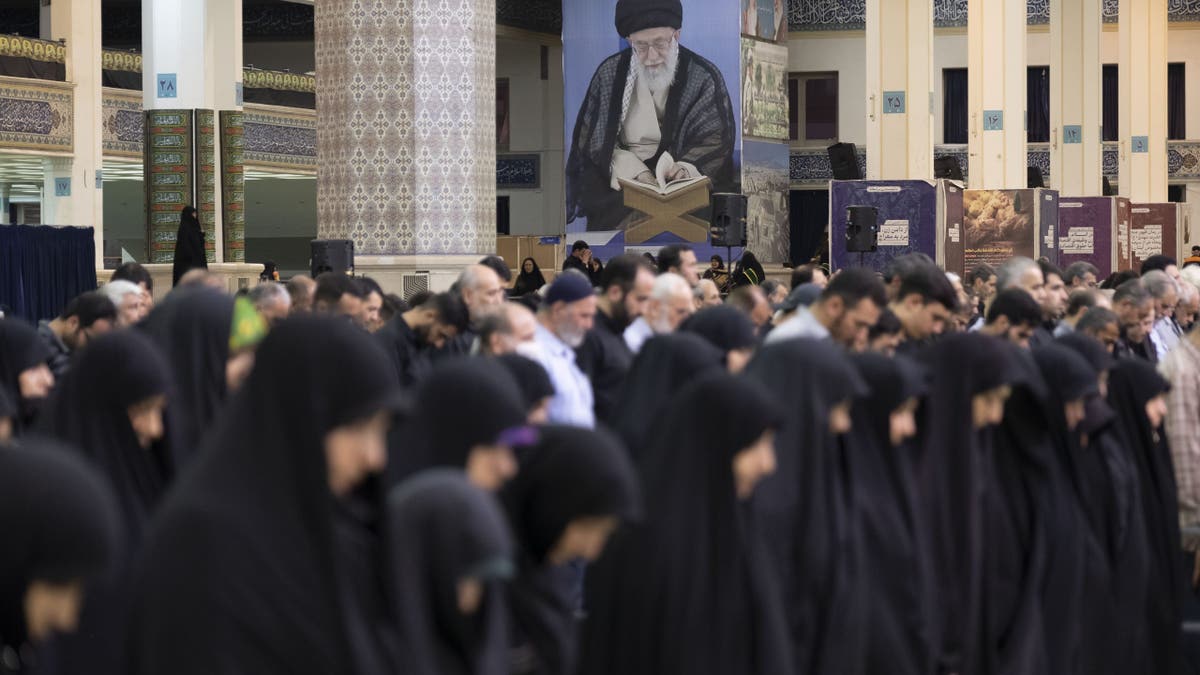
Iranian worshipers pray under a banner featuring a giant portrait of Iranian Supreme Leader Ayatollah Ali Khamenei during a ceremony commemorating assassinated Hamas Leader, Ismail Haniyeh, at the Imam Khomeini Grand Mosque in Tehran, Iran, on Aug. 9, 2024. (Morteza Nikoubazl/NurPhoto via Getty Images)
TOP IRANIAN CLERIC ISSUES ‘FATWA’ AGAINST TRUMP, NETANYAHU
FND: You stated «a broad coalition of Iranians» is already working to build a post-regime future. Who are the key players in that coalition, and how are they coordinating inside and outside the country?
RP: This coalition spans across sectors and ideologies—former officials, dissidents, technocrats, activists, women’s rights leaders, workers, students and members of the diaspora. Inside Iran, they’re organizing resistance and preparing for a democratic transition. Outside, we’re building the institutional groundwork for the day after: from transitional justice to economic recovery. Most importantly, to ensure chaos does not ensue and we can secure a peaceful transition. What unites us is not a political party, but a single goal—freeing Iran from tyranny and rebuilding it as a sovereign, democratic nation.
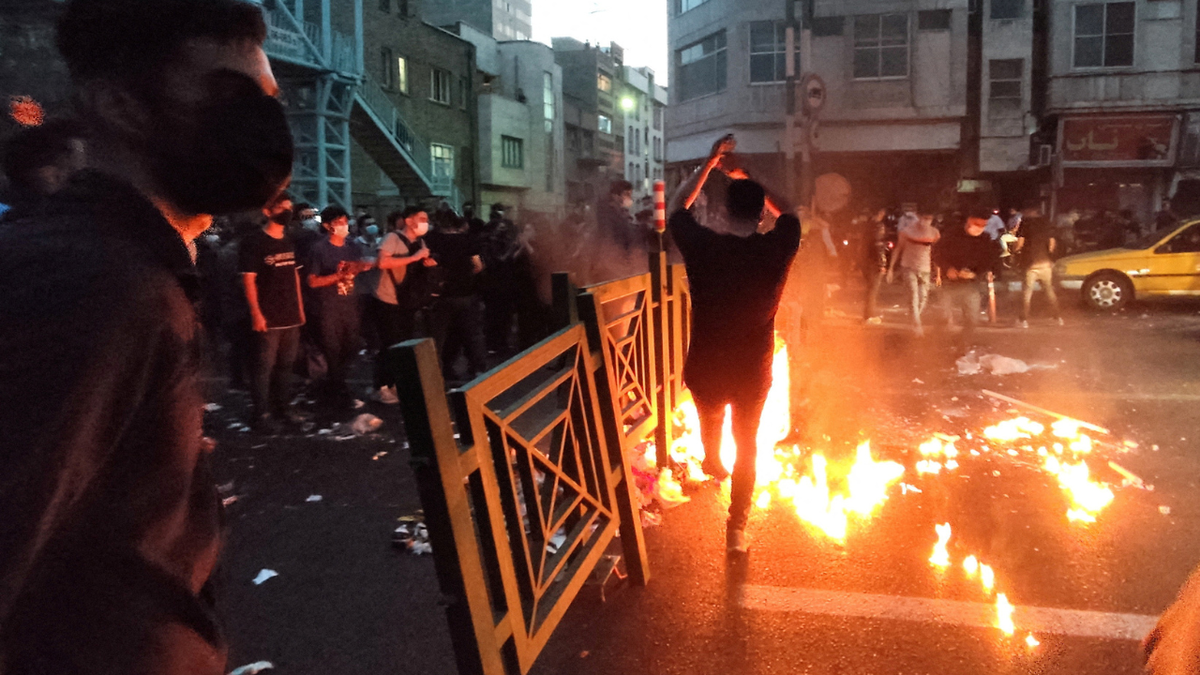
People light a fire during a protest over the death of Mahsa Amini, a woman who died after being arrested by the Islamic Republic’s «morality police,» in Tehran, Iran, on Sept. 21, 2022. (West Asia News Agency)
IRANIAN DISSIDENT LEADER OUTLINES VISION FOR REGIME CHANGE, SAYS IT’S ‘INEVITABLE’
FND: You stress that the Iranian military and security forces should defect and join the people. Have you been in touch with any current or former elements of the armed forces, and do you see signs of that happening?
RP : Yes—quietly, but clearly. I’ve had conversations with both former and current members of the armed forces. Many of them love their country but despise what the regime has turned it into. We are seeing growing cracks — hesitation to follow orders, defections, and signs of passive resistance. In recent days, I have launched a formal channel for these communications to increase. My message to them is simple: history is being written now. Stand with your nation, not the criminals. You will be remembered for your choice.
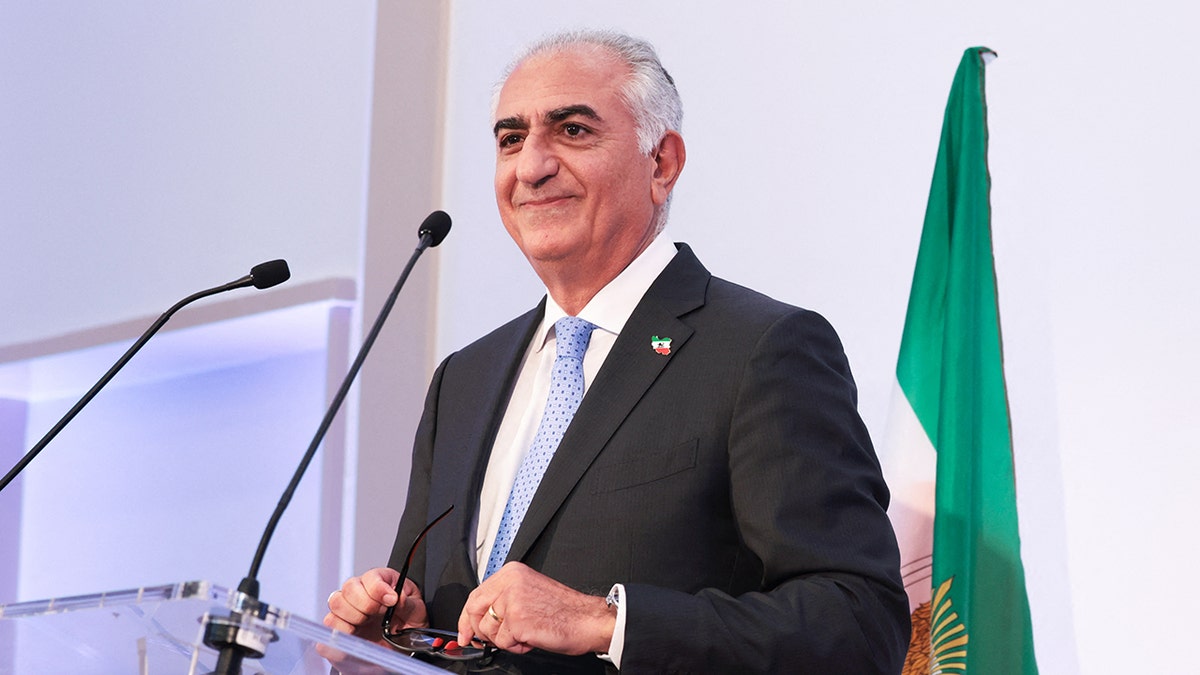
Iranian opposition leader and son of the last shah of Iran, Reza Pahlavi, holds a press conference in Paris on June 23, 2025. (JOEL SAGET/AFP via Getty Images)
FND: As a trained fighter pilot, what’s your opinion about the U.S. and Israeli air campaign in Iran that has shaken the foundations of Iran’s military infrastructure?
RP: I was proud to wear my country’s uniform, and I have flown many of these fighter jets. To see the state of disrepair and disgrace the Islamic Republic has dragged our armed forces into pains me deeply. The members of the armed forces I speak to share this pain. They hate to see our once proud military used to abuse our people at home and sow chaos and terror abroad. The new Iran I seek will have a once-again proud armed forces that defends our nation and helps establish peace and stability in the Middle East.
FND: You’ve been criticized — also by Iranian dissident leader Maryam Rajavi — for allegedly seeking to restore the monarchy and lacking broad support among Iranians. What do you say to those who claim you have no legitimate mandate and are out of touch with the people inside Iran?
RP: Maryam Rajavi leads a radical cult that fuses Marxist and Islamist ideologies—a group that has killed American soldiers and is completely rejected by Iranians. I don’t respond to attacks from terrorists, especially those with no support on the ground.
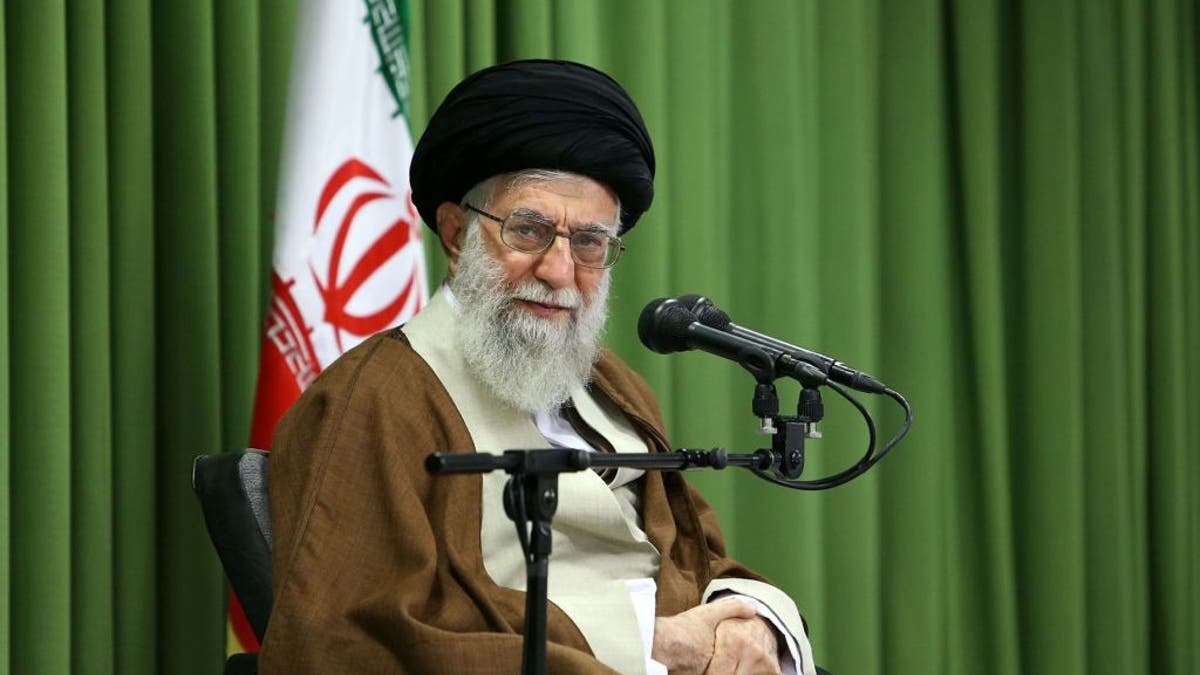
Iranian Supreme Leader Ayatollah Ali Khamanei. (Iranian Leader’s Press Office – Handout/Anadolu Agency/Getty Images)
CLICK HERE TO GET THE FOX NEWS APP
I am focused on leading this movement and this change, I am not advocating for a particular form of government. Iranians will choose their future form of government in free and fair elections and anyone who wants to deny them this right is not part of the democratic opposition.
My mandate is the trust of my compatriots who chant my name not because I ask for it, but because I have stepped forward to serve them and not myself. When Iran is free, the people—not cults or clerics—will decide our future in a national referendum.
INTERNACIONAL
EEUU incautó en el Océano Índico el buque petrolero Veronica III que formaba parte de la flota fantasma iraní
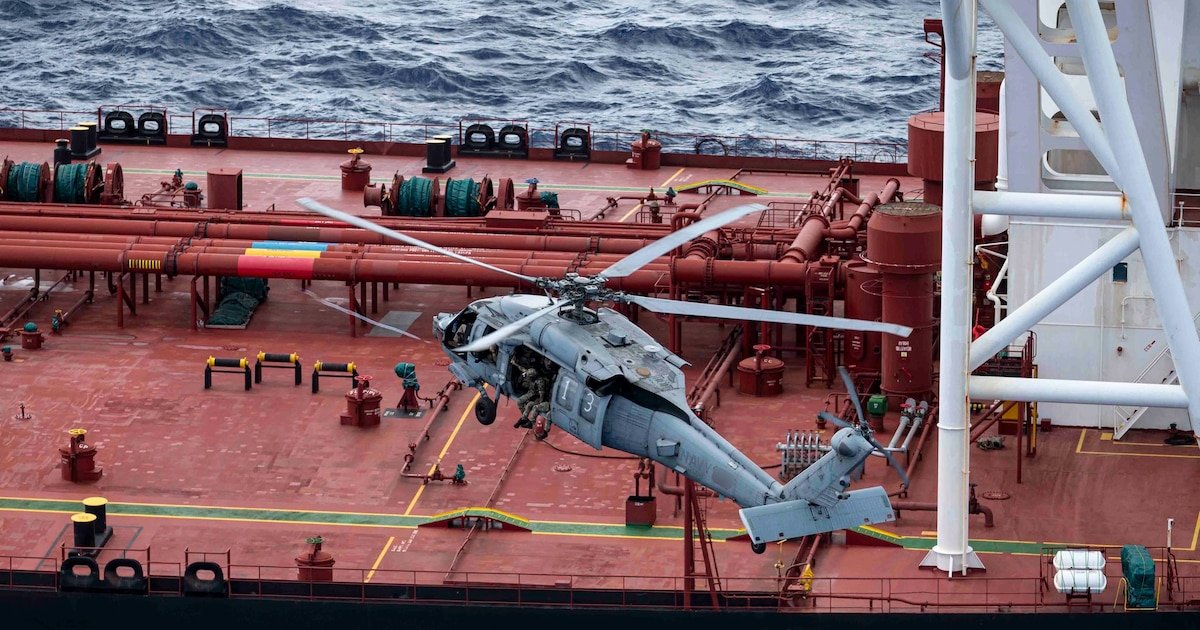
Fuerzas militares de Estados Unidos llevaron a cabo una operación de interdicción y abordaje del petrolero Veronica III en aguas del Océano Índico, tras una persecución transoceánica que comenzó en el Mar Caribe, según informó el domingo el Departamento de Guerra.
La operación, descrita por el Pentágono como un ejercicio de “derecho de visita”, marca un nuevo capítulo en los esfuerzos de la administración del presidente Donald Trump para aplicar una “cuarentena” marítima sobre buques sancionados que transportan crudo vinculado a naciones bajo embargo. El Veronica III había sido identificado previamente como uno de los buques que desafiaron el bloqueo impuesto en las costas venezolanas a principios de este año.
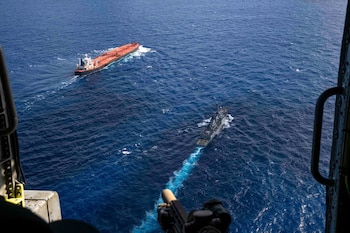
“Durante la noche, las fuerzas estadounidenses llevaron a cabo una interdicción marítima y abordaje del Veronica III sin incidentes en el área de responsabilidad de INDOPACOM“, anunció el Departamento de Guerra a través de una publicación en la red social X. Aunque el comunicado oficial utilizó el término “durante la noche” (presumiblemente en referencia al horario de Washington), el material gráfico distribuido por las autoridades muestra que el abordaje físico se produjo a plena luz del día en las coordenadas del Índico.
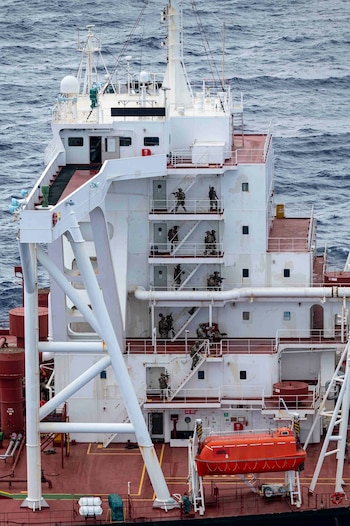
Un video proporcionado por el Departamento de Guerra capturó el momento en que soldados estadounidenses abordaban un helicóptero para iniciar la misión. En las imágenes se observa la aeronave sobrevolando la estructura del Veronica III antes de que el personal militar descendiera a la cubierta. Otras tomas muestran a los soldados asegurando el buque junto a naves de apoyo naval que flanqueaban al petrolero.
Analistas de datos de LSEG Vessel Tracker confirmaron la posición más reciente del buque en el Océano Índico este 15 de febrero de 2026. La identidad del tanquero fue verificada mediante el análisis de su forma, estructuras de grúas y los patrones de pintura en la cubierta, los cuales coinciden con las imágenes de archivo del navío.
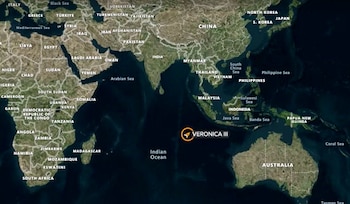
El Veronica III es el caso más reciente de una serie de incautaciones de alto perfil ejecutadas por la Marina y la Guardia Costera de Estados Unidos fuera de las aguas territoriales americanas. El buque había “huido” del Mar Caribe semanas atrás, intentando evadir la vigilancia estadounidense al navegar hacia el hemisferio oriental. Desde entonces se había convertido en un objetivo prioritario
La interdicción se enmarca en la política de “cuarentena” establecida por la administración Trump, una medida dirigida a restringir el movimiento de mercancías y recursos de entidades bajo sanción.
El bloqueo, ordenado por el presidente Trump en diciembre de 2025, tiene como objetivo asfixiar las rutas logísticas de la denominada “flota en la sombra”, un grupo de petroleros que utilizan cambios de bandera, nombres falsos y señales de transpondedor desactivadas para transportar petróleo sancionado. Según registros marítimos, el Veronica III ha estado vinculado anteriormente a redes de transporte de crudo iraní y venezolano, operando bajo diversos alias para evadir los controles financieros internacionales.
Los analistas sugieren que esta operación en la región de INDOPACOM subraya la intención de Washington de proyectar su poder naval de manera global para hacer cumplir sus políticas de seguridad nacional.
“El buque intentó desafiar la cuarentena del presidente (Donald) Trump con la esperanza de escapar. Lo rastreamos desde el Caribe hasta el océano Índico, acortamos la distancia y lo abordamos”, enfatizó el departamento dirigido por Pete Hegseth. “Ninguna otra nación tiene el alcance, la resistencia ni la voluntad para lograrlo”.
“Las aguas internacionales no son un santuario. Por tierra, aire o mar, los encontraremos y haremos justicia”, agregó.
Hasta el momento, no se ha informado sobre la resistencia por parte de la tripulación ni se han reportado heridos durante la operación. El destino final del cargamento y del buque permanece bajo revisión de las autoridades federales, mientras el Veronica III es escoltado hacia un puerto no especificado bajo control estadounidense.
INTERNACIONAL
Maryland woman says TPUSA high school event raised ‘serious concerns,’ says Child Protective Services notified
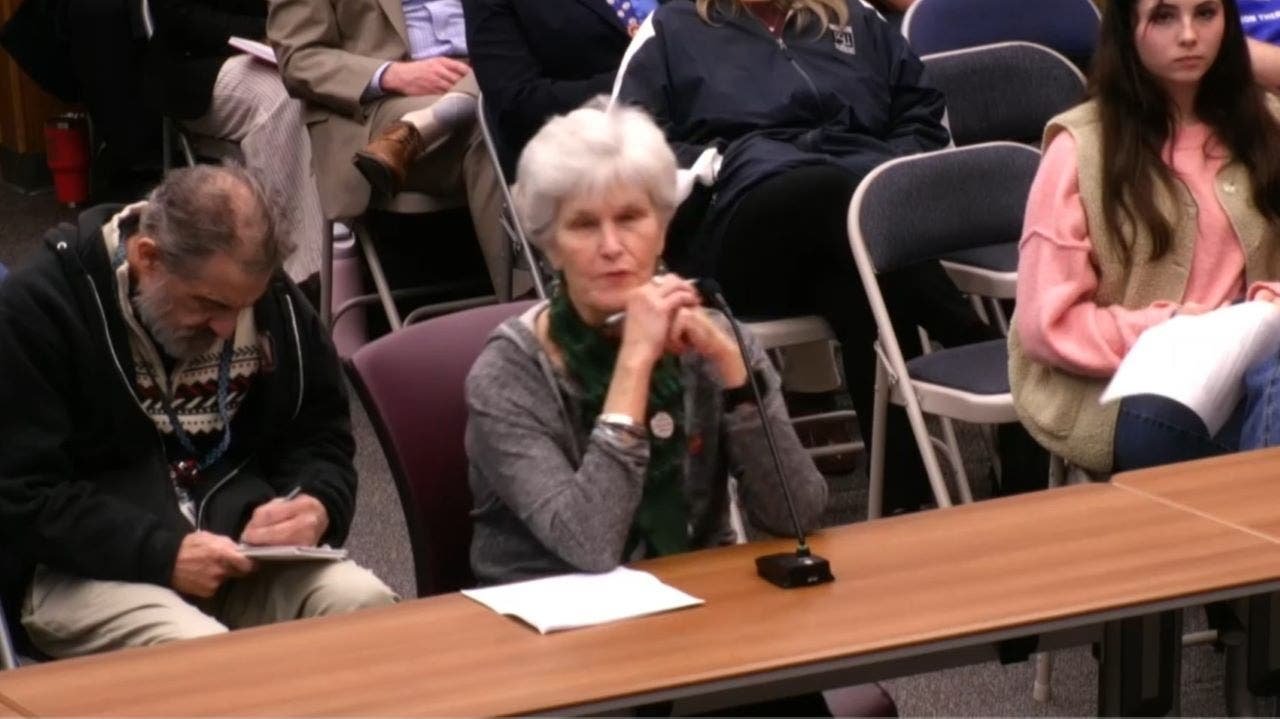
NEWYou can now listen to Fox News articles!
A student group affiliated with Turning Point USA is facing criticism for hosting an event at a Maryland high school in December, with one woman saying that Child Protective Services had been notified.
A local community member, who was identified as Nancy, expressed «serious concern» about the December TPUSA-affiliated event at a February 12 board meeting. The woman spoke after a student from the high school who serves as president of the Calvert County Club America.
That student said his group placed restrictions on the event after receiving «hate» online, including restricting access for adults they did not know who were not volunteers or parents of attendees. He also stated that all students who attended had parental permission.
«We have been accused of many things. We have been accused of grooming children … an allegation that a random unnamed man was president of our group and had certain felony charges. I’m the president of the group. I’m 17, I’m a minor. I can’t groom children because I am a child. I don’t have any felony charges or convictions,» the student said, adding an invitation to discuss any questions.
ERIKA KIRK WELCOMES ATTENDEES TO FIRST AMERICAFEST SINCE HUSBAND’S DEATH, ENDORSES JD VANCE FOR PRESIDENT
A woman identified as «Nancy» speaks at a Maryland school board meeting. (Calvert County, Maryland)
The student clarified that CCCA is affiliated with TPUSA but is its own 501(c)(3) organization and is not part of the state’s public school system.
Nancy spoke next, raising her issues with the TPUSA event.
«While community building opportunities for students are important, this event raises serious concerns related to student safety, parental rights, and governance oversight,» the woman stated, claiming that parents and legal guardians were not permitted to attend the event.
«Excluding parents and guardians from a student-focused event creates a lack of transparency and undermines established best practices for youth safety,» she continued, going on to say that such events should be subject to supervision and background checks.
«Students are widely recognized as vulnerable population, they are in critical developmental stages, and especially susceptible to influence,» she added.
DEFIANT TPUSA LEADER WON’T QUIT DESPITE CHAPTER FACING HARASSMENT, HOSTILITY AFTER KIRK ASSASSINATION
«All Board of Education members in this room are mandated reporters under state law, as I am. Based on the circumstances surrounding this event, a report was made to Child Protective Services,» the woman added as she concluded her remarks.

Attendees pray during Turning Point USA’s AmericaFest 2025, Thursday, Dec. 18, 2025, in Phoenix. (Jon Cherry/AP)
Controversy over the event comes as TPUSA continues to grow its influence on high school and college campuses across the country since the assassination of the group’s founder, Charlie Kirk.
His wife, Erika Kirk, told Fox News’ Shannon Bream in December that the organization intends to resume its normal presence on college campuses in particular.
TURNING POINT USA HOLDS AMERICAFEST CONFERENCE FOLLOWING CHARLIE KIRK ASSASSINATION
«We are not afraid,» she said, adding that the TPUSA team will continue to host «Prove Me Wrong»–style debates as part of its campus outreach.

Erika Kirk, widow of Charlie Kirk, speaks at Turning Point USA’s annual AmericaFest event in Phoenix, Arizona on December 18, 2025. (Jamie Vera/Fox News)
Charlie Kirk was assassinated during an outdoor event on Sept. 10 at Utah Valley University. The gathering marked the first stop on TPUSA’s planned «American Comeback Tour,» and at first, nothing appeared out of the ordinary.
CLICK HERE TO DOWNLOAD THE FOX NEWS APP
The charismatic TPUSA founder rose to prominence through his signature political debates on college campuses. Moments before the fatal shot, he sat beneath a white tent emblazoned with the slogan «Prove Me Wrong,» fielding open-mic questions from thousands in attendance.
Fox News’ Amanda Macias contributed to this report.
education,maryland,politics,charlie kirk
INTERNACIONAL
Rafael Grossi propuso una reestructuración profunda de la ONU: “Necesita menos grasa y más músculo”

El candidato argentino a secretario general de las Naciones Unidas, Rafael Grossi, defendió una profunda reestructuración del organismo que requiere “menos gordura y más músculo”, y expresó que le resulta “muy doloroso” que Brasil haya decidido apoyar a otra candidata en lugar de respaldar su postulación.
“El proceso evolucionará y tal vez, en algún momento, yo tenga ese apoyo del Brasil”, dijo Grossi, actual director general del Organismo Internacional de Energía Atómica (OIEA), en una entrevista con el diario brasileño Folha de São Paulo al margen de la Conferencia de Seguridad de Múnich.
Brasil ha decidido apoyar la candidatura de la ex presidenta chilena Michelle Bachelet para liderar la ONU, alineándose con otros gobiernos de izquierda en la región, mientras que el presidente argentino Javier Milei respalda a Grossi. Esta división refleja las tensiones políticas en América Latina, aunque el diplomático argentino rechazó que su candidatura tenga un sesgo ideológico.
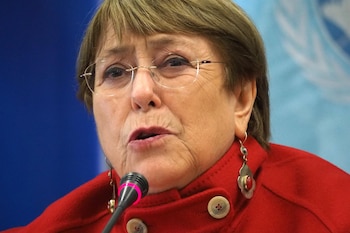
“Yo no soy un candidato de derecha, soy un funcionario internacional independiente”, afirmó Grossi. “O sea, la Argentina no está presentando su ministro de Relaciones Exteriores, un amigo del presidente Javier Milei. Tengo una trayectoria de 40 años en la diplomacia, gran parte de ella muy próxima de Brasil”.
El argentino, de 63 años, busca suceder al portugués António Guterres en uno de los momentos más desafiantes para la organización desde su creación en el posguerra. La ONU enfrenta cuestionamientos sobre su relevancia y atraviesa una crisis financiera sin precedentes, agravada por el recorte de fondos de Estados Unidos.
“Para mí, esta elección es una de las más decisivas en la historia”, señaló Grossi. “Hay una situación internacional marcada por un nivel altísimo de conflictos y fragmentación. Hay enormes dudas, escepticismo y pesimismo en cuanto a la capacidad de las Naciones Unidas de agregar valor. Dicen: ‘¿Para qué sirve? ¿Para qué existe?’ Algunos inclusive afirman que es una fuerza negativa”.
Ante este panorama, el candidato argentino propuso una reestructuración que va más allá de simples recortes presupuestarios. “Menos grasa y más músculo. Es decir, no una ONU raquítica, pequeña, débil, tímida y temerosa”, explicó. “La gente se da cuenta de que una ONU tan apagada tampoco es algo bueno”.
“Hay duplicidad de mandatos innegable. Hay un burocratismo innegable, hay seis, siete, ocho organismos hablando de las mismas cosas —eso también no es viable”, aseveró.
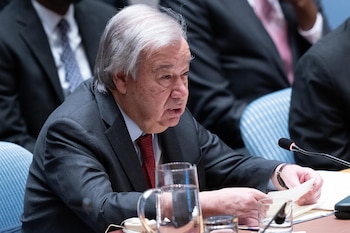
Grossi expresó confianza en su capacidad para reconectar a la ONU con las grandes potencias, particularmente Estados Unidos, que representa más del 22% del presupuesto del organismo. “Los EEUU fueron los que expresaron eso de forma muy clara, retirando recursos de la organización o suspendiendo sus pagos”, dijo. “Pero no veo otros que hayan dicho: ‘No se preocupen, yo pago.’ En la realidad, muchos otros comparten en silencio ese escepticismo”.
Consultado sobre si podría ser el candidato de Donald Trump, Grossi respondió con cautela: “Sería arrogante decir eso. Sería un error por mi parte. Lo espero, lo deseo, del mismo modo que quiero ser el candidato apoyado por todos esos países decisivos”.
Respecto a la reforma del Consejo de Seguridad, uno de los temas más sensibles en la agenda de la ONU, Grossi reconoció la legitimidad de países como Brasil para obtener un asiento permanente, aunque advirtió que el proceso depende de alcanzar “una configuración aceptable para otras regiones”.
El diplomático también abordó la ausencia histórica de mujeres en el cargo máximo de la ONU. “Creo en la igualdad entre el hombre y la mujer. A partir del momento en que hay candidaturas femeninas, el principio de la igualdad entre hombres y mujeres está perfectamente protegido”, afirmó, señalando que bajo su gestión en la OIEA la proporción de mujeres en altos cargos pasó de 28% en 2019 a 53% actualmente.
El argentino también defendió su equilibrio diplomático ante críticas de distintos bandos. “Cada vez que publico algo en el X, los rusos dicen: ‘Él está en las manos de los ucranianos.’ Y los ucranianos dicen: ‘Es un fantoche de Putin’”, ilustró.
El proceso de selección del nuevo secretario general requiere al menos 9 de 15 votos en el Consejo de Seguridad, donde Estados Unidos, China, Rusia, Francia y Reino Unido tienen poder de veto.
Hasta ahora, Grossi y Bachelet son los únicos candidatos formalmente nominados, aunque también suenan como posibles aspirantes la ex vicepresidenta de Costa Rica Rebeca Grynspan, la ecuatoriana María Fernanda Espinosa, la primera ministra de Barbados Mia Mottley, la exsecretaria ejecutiva de la CEPAL Alicia Bárcena y la ex primera ministra de Nueva Zelanda Jacinda Ardern.
Por una regla informal de rotación regional, le correspondería a un latinoamericano suceder a Guterres, cuyo mandato concluye en enero de 2027. La presentación formal de candidatos finaliza el 1 de abril.
Business,Domestic Politics,Corporate Events,South America / Central America,Government / Politics

 POLITICA3 días ago
POLITICA3 días agoA quién afecta la Reforma laboral: estos son los puntos clave del proyecto de Milei

 DEPORTE3 días ago
DEPORTE3 días agoEl Barça y media Europa esperan: la joya de 19 años Diomandé atrapada en un lío legal

 POLITICA2 días ago
POLITICA2 días agoEl Gobierno busca aprobar la reforma laboral y el Régimen Penal Juvenil antes del 1 de marzo











